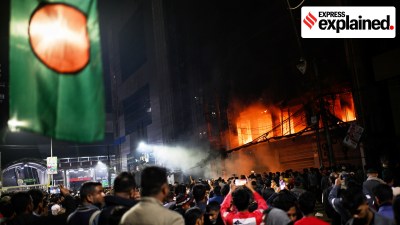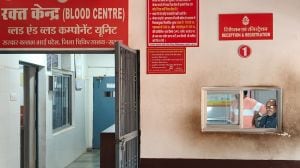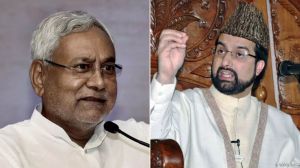
First, this is the most high-profile blow to Hamas since the October 7 attacks, in which the Palestinian outfit killed at least 1,200 Israeli civilians and military personnel, and took about 250 hostages. Since then, the Israeli military has been pounding Gaza with air strikes and carrying out ground operations, going after the Hamas leaders, in which more than 40,000 people have been killed.
So, from the Israeli point of view, this is a major victory for its mission to neutralise Hamas — a stated objective behind launching Operation Swords of Iron.
Second, Hamas views this as a major provocation since Haniyeh was the head of its political bureau, based in Qatar. He was the public face of Hamas and was negotiating the terms of the hostage deal and the ceasefire, while Yahya Sinwar is its military leader, responsible for the October 7 attacks.
In a statement, Hamas mourned the death of Haniyeh, who it said was killed in “a treacherous Zionist raid on his residence in Tehran” after attending the swearing-in ceremony of the new Iranian President. This is certain to anger Hamas and its benefactor, Iran.
Hamas official Sami Abu Zuhri told Reuters that the assassination of Haniyeh in Iran was a grave escalation.
Story continues below this ad
Third, the venue of Haniyeh’s assassination is another important element. The fact that the targeted strike took place in Tehran will be seen as a major escalatory move. Haniyeh had also met Iran’s Supreme Leader Ayatollah Khamenei.
The Hamas leader, who was living in Qatar, gave him immunity there. But, by killing him in Iran, it seems, Israel has made a move to signal that the group’s leaders are not safe in Iranian security.
In April this year, Israel had targeted Iran in the first direct assault, after Iran had conducted strikes on Israel — its missiles were intercepted by Israel and its allies in the region. Thereafter, the temperature cooled somewhat, but this assassination has the potential to prompt another round of strikes.
Fourth, within Iran and Hamas, there will be now calls for avenging the death of Haniyeh, and that is certain to put pressure on the newly-elected Pezeshkian, who is considered a moderate and may find himself in a tight spot to respond.
Story continues below this ad
Pezeshkian’s own election campaign was to start negotiations with the West for economic reasons — Iran has been facing the heat of Western sanctions, and he would have hoped for a restart to the dialogue process with Europe, to begin with.
With the assassination of Haniyeh, Pezeshkian will be under pressure from the IRGC and the hardliners in the Iranian establishment to respond in kind.
Pezeshkian’s first few days and weeks will be a test of his skills as a politician, negotiating with the Supreme Leader on how to respond to the crisis.
Fifth, this assassination gives a lifeline to Israel’s Prime Minister Benjamin Netanyahu. He has been facing questions on his leadership, and his political survival has been at stake with pressure on him to finally strike the hostage deal with Hamas, being brokered by the US, Egypt and Qatar among others.
Story continues below this ad
The assassination will have the potential to upend all such efforts for the time being, and it is expected to prolong the war in Gaza for some more time. This will mean that Netanyahu can stay until the war is over.
Sixth, the US elections are at a pivotal stage, with Vice President Kamala Harris looking to shape the Democratic field — by being anointed as the Democratic Presidential candidate and picking the Vice Presidential nominee — in the next couple of weeks.
She has signalled that she will be tougher on Netanyahu regarding the Israeli response and the war in Gaza, as she is focused on the younger Democratic voters, and this adds a layer of complication.
Harris, who has been perceived as more vocal on the war in Gaza as compared to President Joe Biden, will now have to think about how to respond in case there is escalation in the region.
Story continues below this ad
Seventh, the wider region is a tinderbox, because if there is an escalation by Iran and Hamas, it will impact the entire region. Qatar, Turkey, and Yemen’s Houthis have already condemned the assassination, and top regional players like Saudi Arabia, and UAE are watching the events closely.
After more than nine months of war in Gaza, this is a defining moment — after the development in April when there was a risk of escalation — when the region might get drawn into a broader conflict.
Eighth, India is still processing the developments, as South Block is mindful of the sensitivities of a response. While it does not have any positive sentiments about the Hamas leaders, it will be careful in its framing — since it involves a targeted assassination on foreign soil.
The immediate Indian concern will be the peace and stability in the region which is home to about 9 million Indians living and working in the region, apart from the region supplying almost two-thirds of crude to India.








































